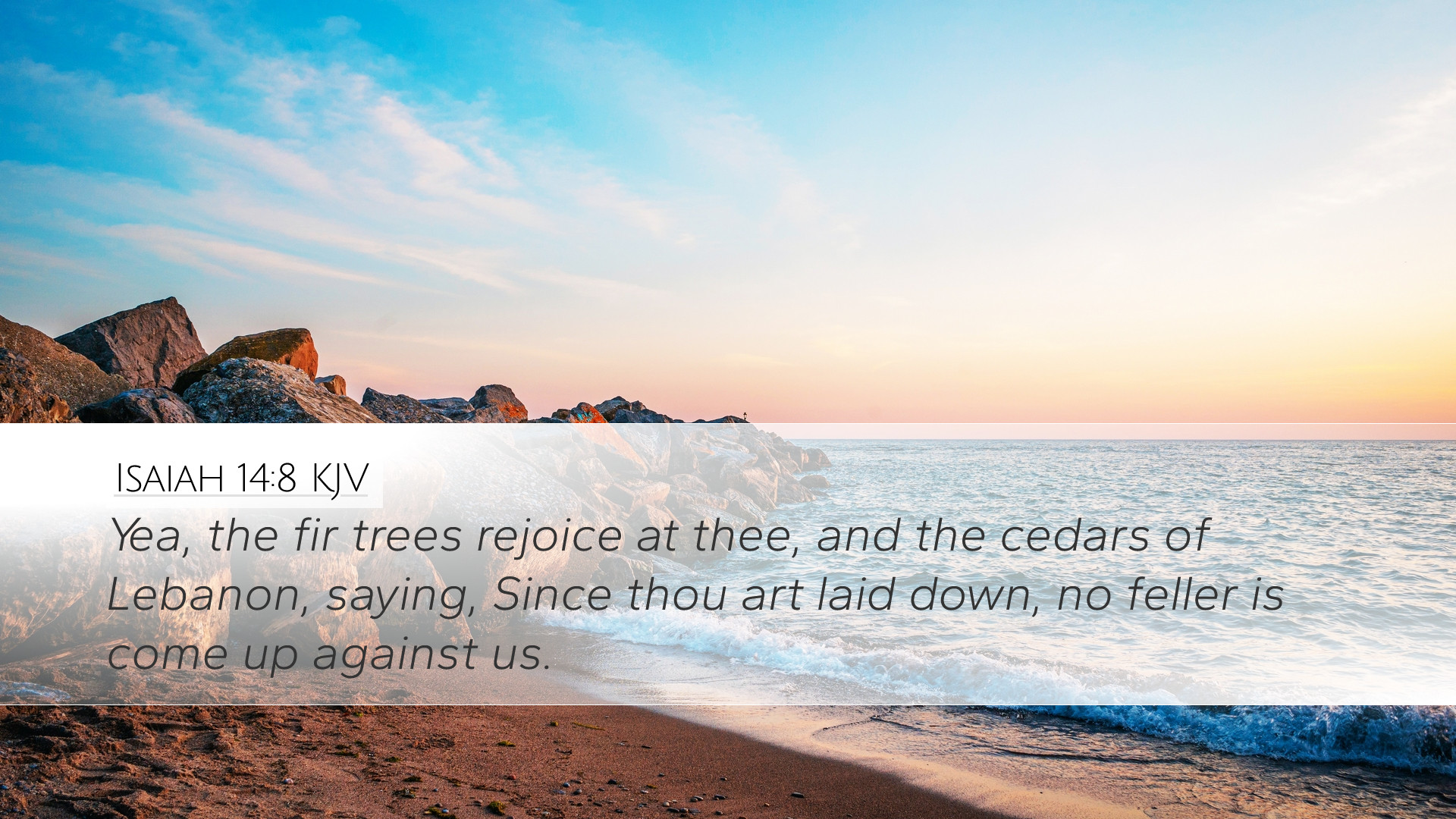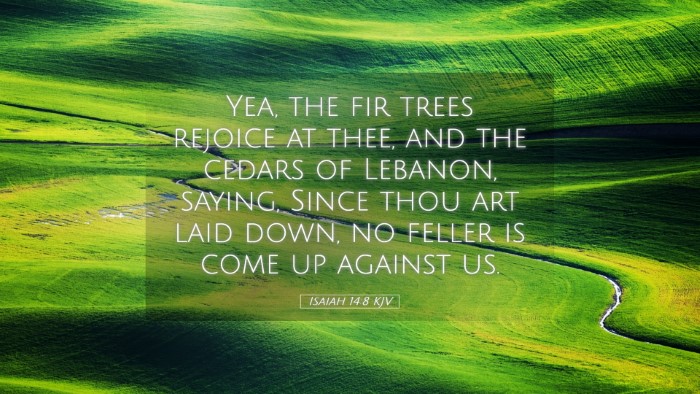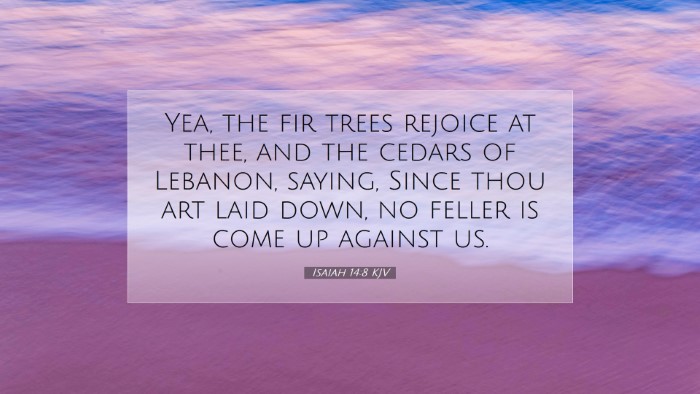Commentary on Isaiah 14:8
Verse Text: "Yea, the fir trees rejoice at thee, and the cedars of Lebanon, saying, Since thou art laid down, no feller is come up against us."
Introduction
Isaiah 14:8 provides a fascinating glimpse into the ecological and spiritual ramifications following the fall of Babylon, represented metaphorically through the reaction of the fir trees and cedars of Lebanon. This commentary synthesizes insights from public domain commentaries, including those of Matthew Henry, Albert Barnes, and Adam Clarke, to explore the theological and practical lessons found in this verse.
Contextual Background
Isaiah 14 is often regarded as a mockery of the Babylonian king and, by extension, the empire itself. The chapter conveys themes of judgment, liberation, and restoration for God’s people. The mention of nature, particularly trees rejoicing, serves as a literary device to illustrate the broader cosmic impact of divine judgment on Babylon.
Historical Context
The context of Isaiah's prophecy emerges from the historical backdrop of the Babylonian captivity. The Jewish people suffered under Babylonian rule, and this prophecy reflects not only their future liberation but also the broader God's design for all creation.
The Rejoicing of Nature
Symbolism of Trees: In biblical literature, trees often symbolize strength, stability, and life. The fir trees and cedars of Lebanon are particularly notable for their longevity and towering presence. Their rejoicing signifies a notable change in the order of human reigns — from tyranny under Babylon to the promise of restoration for God’s people.
Insights from Matthew Henry
Matthew Henry emphasizes the joyous reaction of the trees as a contrast to the devastation caused by the fallen Babylonian king. He argues that the absence of the "feller" (one who cuts down trees) signifies a cessation of tyranny and oppression:
- Impact on Creation: Henry notes that all creation rejoices in the victory of God's justice over oppression.
- Divine Justice: The response of nature is a direct reflection of God’s redemptive plan.
Insights from Albert Barnes
Albert Barnes addresses the prophetic nature of this passage, invoking the idea of peace and security that follows the end of oppression:
- Symbol of Peace: Barnes interprets the trees’ rejoicing as a representation of the peace that follows the downfall of an oppressive regime.
- Nature's Response: He indicates that nature reflects the order God intended, which is disturbed by human sin but restored through divine intervention.
Insights from Adam Clarke
Adam Clarke provides additional nuanced insights into the language of the text and emphasizes the metaphorical implications:
- Imagery of Rejoicing: Clarke points out that the imagery of trees rejoicing conveys the idea that all elements of creation are connected, and thus, the triumph of good over evil resonates throughout the natural world.
- Reflection of God’s Glory: He elaborates on the notion that even the natural world acknowledges and glorifies God’s sovereign actions, further underlining the theme of creation’s response to divine authority.
Theological Implications
The verse illustrates significant theological themes pertinent to understanding God’s sovereignty over creation:
- The Sovereignty of God: The triumphant response of creation shows that God’s rule is absolute and that all of creation is under His authority.
- Restoration and Hope: This imagery paints a hopeful picture for the future of Israel and highlights the broader Christian hope for restoration after suffering.
- Ecological Relationship: The relationship between humans and creation is intricately tied to obedience to God. The rejoicing of trees signifies a longing for restoration to God's intended order.
Practical Application
For pastors, students, theologians, and Bible scholars, the insights from Isaiah 14:8 encourage reflection on several practical applications:
- Celebrating Justice: Congregations and communities can find strength in the assurance that God’s justice will prevail, calling for patience and trust in His timing.
- Nature's Role: This passage challenges believers to respect and cherish creation, recognizing its integral role in God’s plan.
- Vision of Hope: In difficult times, Christians are reminded to look forward to God’s ultimate restoration, similar to the rejoicing depicted in the passage.
Conclusion
Isaiah 14:8 stands as a powerful testament to the repercussions of divine judgment and the subsequent joy that accompanies liberation. Through the lens of natural creation, the verse emphasizes God's sovereignty, the interconnectedness of all creation, and the hope that arises from faith in His promises. As believers engage with this text, they are invited to consider how the fall of earthly powers makes way for the establishment of God’s everlasting kingdom.


